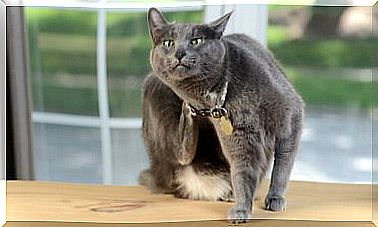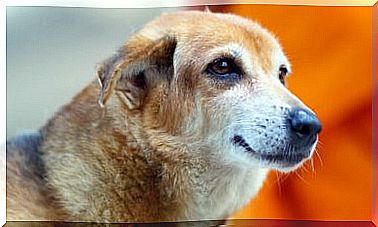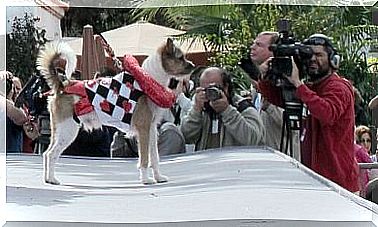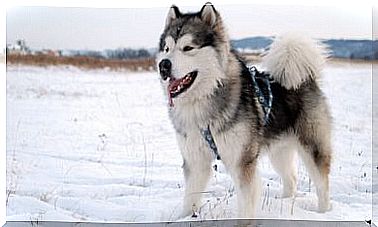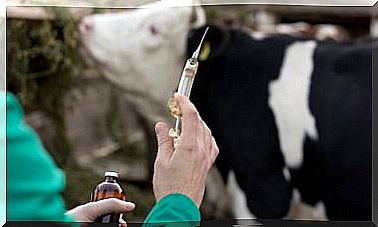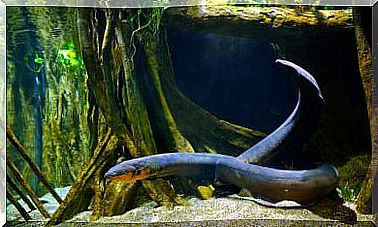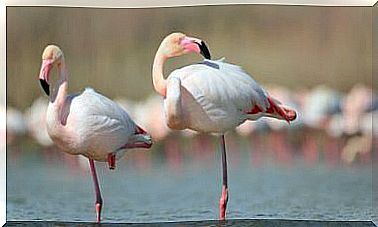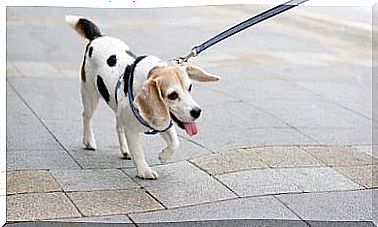Prevention And Rapid Detection Of Colic In Horses
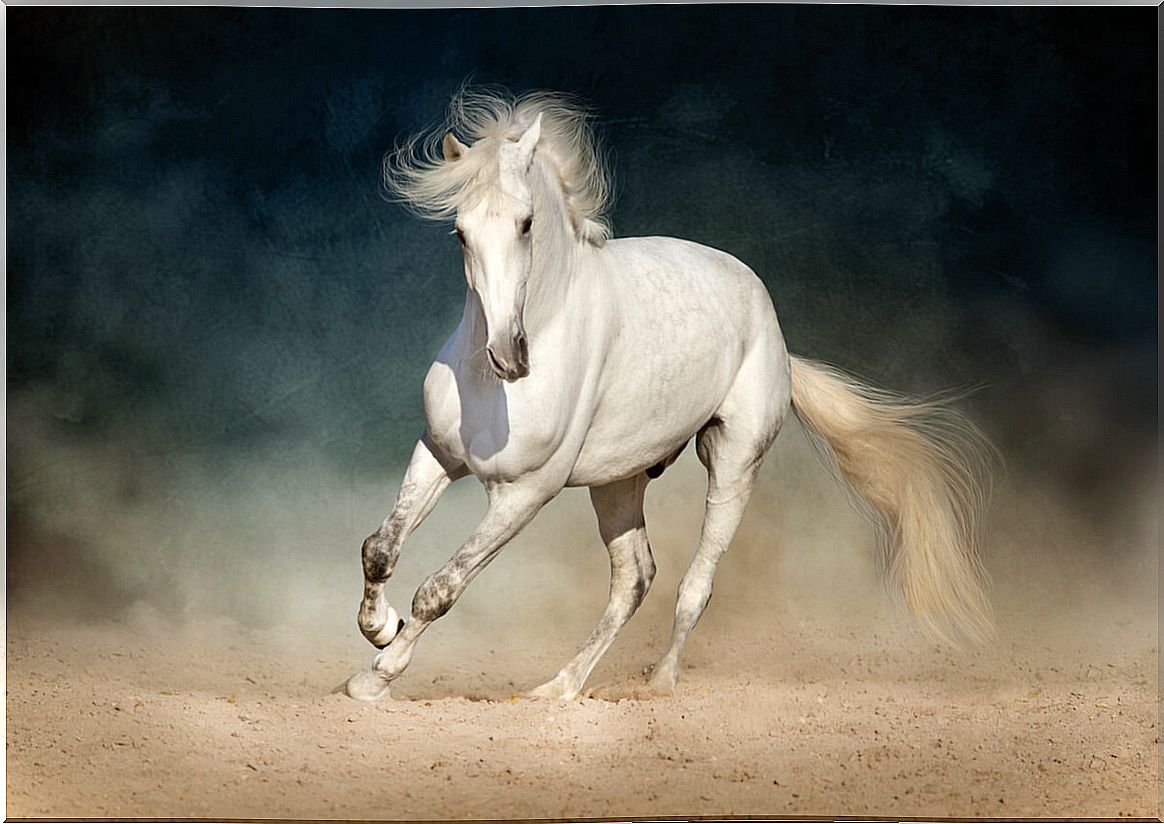
Colic in horses is very common and is among the main causes of death, especially if it is not detected and treated quickly. That is why it is so important to carry out proper management to prevent them from occurring or, at least, to recognize the first symptoms.
It is worth mentioning that many times, despite the care given to these animals, colic appears the same. It is a species that is very sensitive to too many variables and with an anatomy and physiology that does not help its recovery. Therefore, before any indication of illness, it is best to go to a professional.
General approach to colic in horses
Colic is spoken of referring to acute pain in the belly, due to muscle spasms that surround the affected organ. It is true that it is not always related to a digestive organ (see renal colic, for example). Even so, when we talk about colic in horses, it is usually a digestive colic, either of the stomach or the intestine.
People who are related to these animals are perfectly aware of the serious consequences of these pathologies. Either because they have suffered it together with their horse or because it has been the cause of their death even without knowing it.
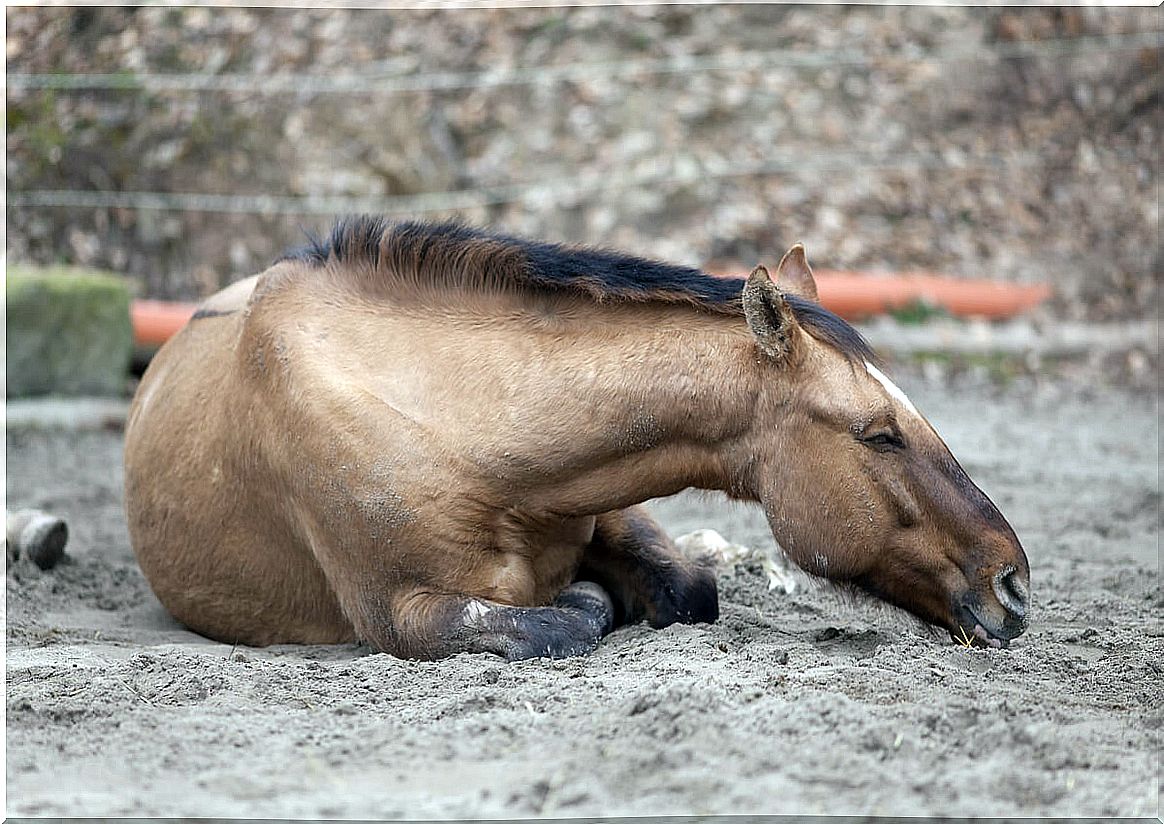
Is there a predisposition in this species to suffer colic?
That’s how it is. There are several reasons why there is a certain trend, such as:
- Their anatomy : horses have a relatively small stomach, therefore their gastric transit is very fast. This means that, throughout the day, food is sent to the intestine with insufficient degrees of digestion.
- Errors in feeding : fundamentally related to the quality and quantity of the ration. In addition, they are especially sensitive to any sudden change in it.
- Bad management : excessive exercise or drinking very cold water among other things.
- Presence of other ailments or diseases ; especially stomach or intestinal disorders.
- Defects in chewing : ideally, it should be slow and careful, in a healthy oral cavity and with all teeth in perfect condition.
And most importantly: horses cannot vomit because the structure of their digestive system prevents them from doing so. This means that they cannot alleviate the discomfort by evacuating the stomach contents. As a compensatory mechanism, the stomach begins to dilate and can rupture, causing peritonitis.
How do we detect colic in horses in time?
First of all, it is important to observe the animal for a few minutes if we have noticed it strange and pay special
attention to its general condition, its behavior and its attitude. During colic the horse will be restless, moving constantly and will tend to scratch the ground.
In general, it will change position frequently, directing anguished glances towards its flanks. It will also be able to lie down cautiously, to do it abruptly, rolling over.
There will be other perhaps more obvious signs such as:
- Increasing the volume of the abdomen.
- The presence of uneaten food in the feeder.
- Changes in stool consistency and even total absence of defecation and urination.
- Sweating for no apparent reason.
If a solution is not given in time, a serious electrolyte imbalance can occur. And if this is not treated immediately, it will inevitably lead to shock and the death of the horse.
If we suspect that it is colic, what do we do?
It is a serious pathology and it is most likely that it will generate a health emergency for the animal, so early intervention by a professional will be essential to prevent possible complications.
The veterinarian will determine, after the clinical examination, the corresponding treatment, whether medical or surgical. An elementary basic key to avoid the death of the animal is a quick diagnosis.
How to prevent colic in horses?
As in any disease, the key is to prevent the causes that predispose to trigger the symptoms.
As we saw previously, in the horse there are many and very varied. For example, your teeth may need to be fixed or regular treatments for gastrointestinal parasites. Diet should also be controlled, remembering that equidae are very sensitive to any food imbalance.
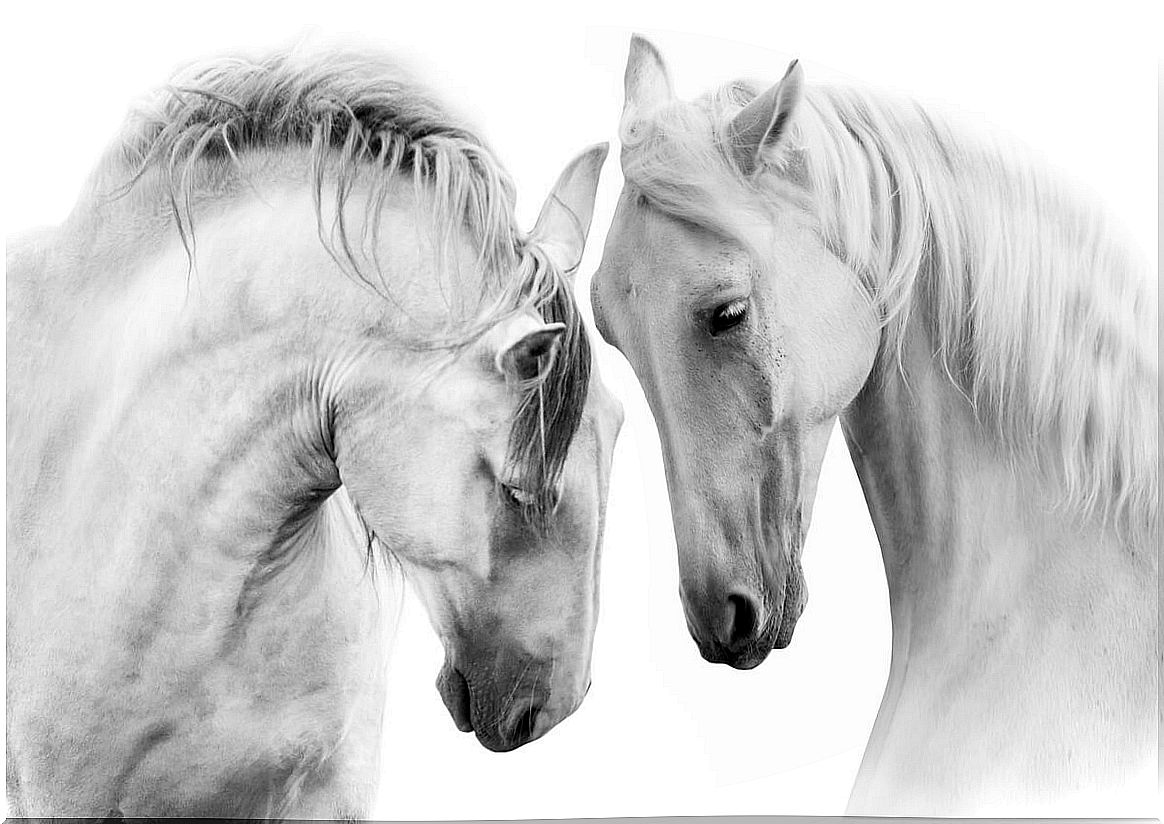
What is the prognosis of colic in horses?
The prognosis will depend on several factors, among which are:
- The cause: is it known? It’s very serious? Have we managed to solve it?
- How quickly the first symptoms are recognized.
- The rapid approach to colic through the treatment prescribed by the veterinarian.
- The favorable response to treatment (something that, unfortunately, is beyond our control).
- The restoration of the gastrointestinal physiology of the animal.
- The appearance of complications: compromised blood circulation, shock, rupture of the digestive organs …
Still, despite the efforts of owners and veterinarians, colic remains the leading cause of mortality in horses.
